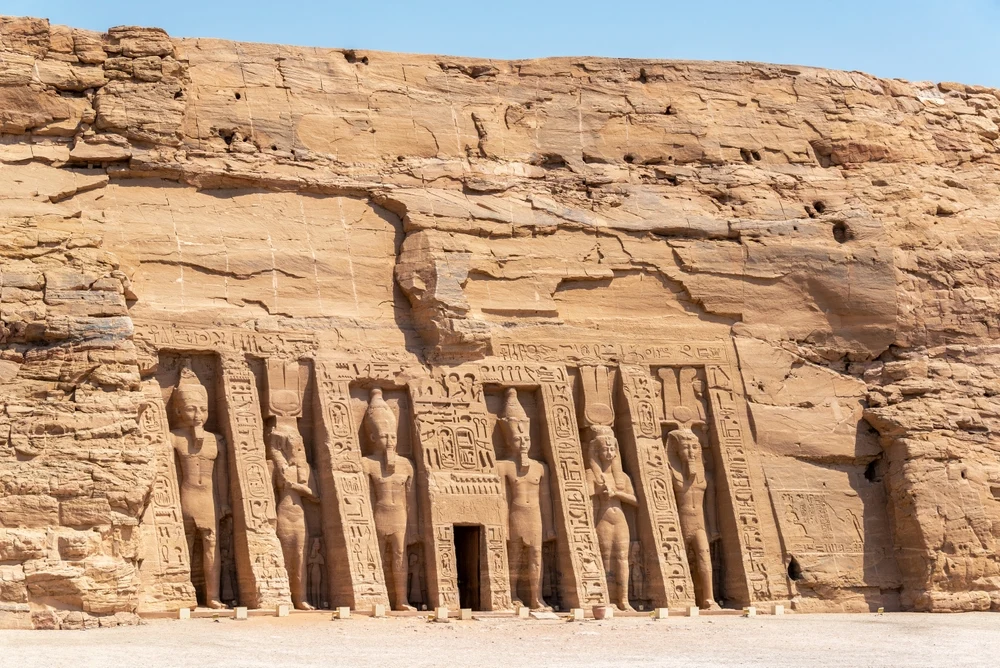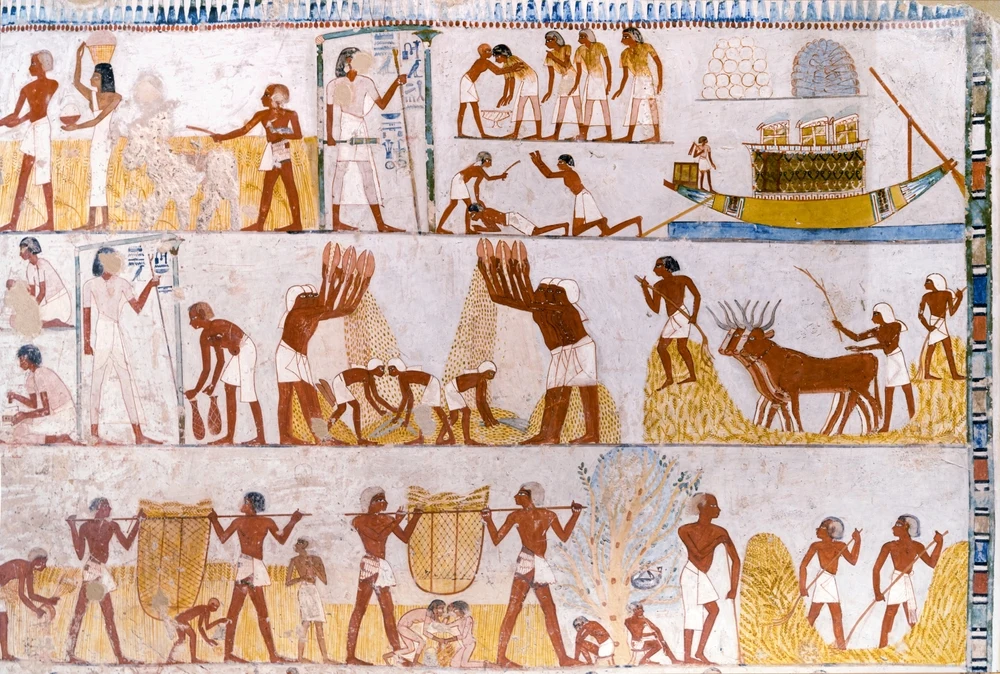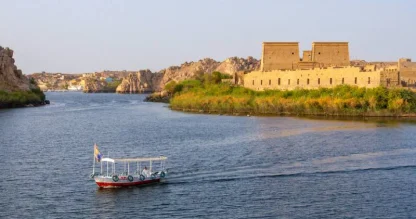Egypt Travel Guide: Plan Your Perfect Trip
Egypt, a land steeped in history and mystery, has been the subject of countless tales and legends. The country's ancient past is etched into every corner, from the grand pyramids that rise from the desert sands to the hieroglyphic scripts adorning temple walls. The mystic land invites globetrotters from around the world to immerse themselves in a culture that is as old as time itself.
Egypt's geographical location, bridging Africa and Asia, has played a significant role in shaping its history and culture. The River Nile, the lifeblood of Egypt, has been instrumental in the development of civilization, providing the necessaries for life and aiding in transportation. The river's fertile banks have seen the rise and fall of mighty pharaohs, the birth of religions, and the creation of many architectural marvels.
The allure of Egypt is not just confined to its historical treasures. From the bustling bazaars in Cairo, the tranquil waters of the Red Sea, the vast expanse of the Sahara, to the lush landscapes of the Nile Delta, Egypt's diverse landscapes offer something for every kind of traveler.
Why Choose Egypt as Your Next Travel Destination?
When it comes to choosing a travel destination, Egypt stands out for its rich cultural heritage, stunning landscapes, and warm hospitality. With a history spanning over 5000 years, Egypt is a treasure-trove of ancient ruins, majestic temples, and royal tombs. The chance to stand at the foot of the Great Pyramids of Giza, one of the Seven Wonders of the Ancient World, is a dream come true for many travelers.
Apart from its historical allure, Egypt also offers an array of experiences catering to different interests. For beach lovers, the pristine shores of the Red Sea are a paradise. Adventure enthusiasts can explore the vast Sahara, while nature lovers can enjoy bird watching in the Nile Delta. Moreover, Egypt's unique blend of African, Middle Eastern, and Mediterranean influences makes it a melting pot of diverse cultures, offering an unparalleled cultural immersion.
Choosing Egypt for your next travel destination also means enjoying warm Egyptian hospitality. Egyptians are renowned for their friendliness and generosity, making every visitor feel at home in this foreign land.

The Ultimate Egypt Travel Guide: Where to Go
Your Egypt trip wouldn't be complete without a visit to its iconic landmarks. Start your journey in Cairo, the capital city, where you can explore the Egyptian Museum, housing the world's most extensive collection of pharaonic antiquities. Don't miss the Great Pyramids of Giza, located on the outskirts of the city. These ancient wonders are a testament to the engineering prowess of the ancient Egyptians.
From Cairo, take a cruise down the River Nile to Luxor and Aswan. Luxor, often referred to as the "world's greatest open-air museum," is home to the Valley of the Kings and the majestic Karnak Temple. Aswan, on the other hand, is known for its serene beauty and the UNESCO-listed Abu Simbel temples.
For a change of pace, head to the Red Sea resorts of Hurghada or Sharm El Sheikh, where you can indulge in water sports, relax on sandy beaches, or explore the vibrant coral reefs. Alternatively, you can experience Bedouin hospitality in the Sinai Peninsula or venture into the Western Desert to witness its unique landscapes.

Must-Visit Historical Sites in Egypt
Egypt's historical sites are a window into its glorious past. The Great Pyramids of Giza and the Sphinx are undoubtedly the most iconic landmarks, but Egypt is dotted with numerous other historical gems. In Luxor, the Valley of the Kings, where pharaohs like Tutankhamun were buried, is a must-visit. The nearby Valley of the Queens, resting place of royal wives and children, is equally fascinating.
The Temples of Karnak and Luxor, with their vast array of sanctuaries, kiosks, pylons, and obelisks, are marvels of ancient architecture. In Aswan, the Temple of Isis on Philae Island and the rock-cut Temple of Ramses II at Abu Simbel are not to be missed.
In Alexandria, the catacombs of Kom El Shoqafa, a multi-level labyrinth of tombs, and the Qaitbay Citadel, standing guard over the Mediterranean Sea, offer insight into Egypt's Greco-Roman era.

Experiencing Egypt's Vibrant Culture
Egyptian culture is a vibrant tapestry woven over millennia. One of the best ways to experience it is through traditional music and dance. From the lively folk dances of the countryside to the soulful tunes of Umm Kulthum, Egypt's cultural expressions are truly captivating.
Egyptian festivals, such as the colorful Moulid celebrations and the ancient spring festival of Sham El Nessim, offer a glimpse into the country's traditions. The bustling bazaars, such as Cairo's Khan El Khalili, are perfect for experiencing the local way of life and for picking up traditional handicrafts.
Language is another aspect of Egypt's culture. While Arabic is the official language, English is widely spoken in tourist areas. Learning a few Arabic phrases can enhance your travel experience.

Local Cuisine: What to Eat on Your Egypt Trip
Egyptian cuisine is a delightful blend of Mediterranean and Middle Eastern flavors. A typical Egyptian meal might include dishes like Ful Medames (fava beans), Koshari (a mix of lentils, rice, pasta, and tomato sauce), and Molokhia (a green soup made from jute leaves). For dessert, don't miss the sweet pastry Om Ali.
Tea is the national drink of Egypt and is usually served strong and sweet. For a unique local experience, try the traditional coffee, served in small cups and often spiced with cardamom.

Preparing for Your Trip to Egypt: Things to Know
Planning a trip to Egypt can be an exhilarating experience, but it's essential to be well-prepared to make the most of your visit. One of the first things to consider is the best time to travel. While Egypt is a year-round destination, the cooler months from October to April are generally considered the best time to visit when the weather is more pleasant.
When packing for your Egypt trip, remember that Egypt is a predominantly Muslim country, and it's advisable to dress modestly, especially when visiting religious sites. Lightweight, breathable clothing is recommended for the hot desert climate, along with a good pair of walking shoes for exploring the ancient sites.
Before you embark on your Egypt journey, it's important to familiarize yourself with the local customs and traditions. Egyptians are generally warm and hospitable, and showing respect for their culture will make your trip more enjoyable.

More Articles You May Like
Happy Travellers with Cairo Nile Cruise!
Take a look at our top Egypt Tours reviews, where you will find firsthand insights from our very own Intrepid travellers.









